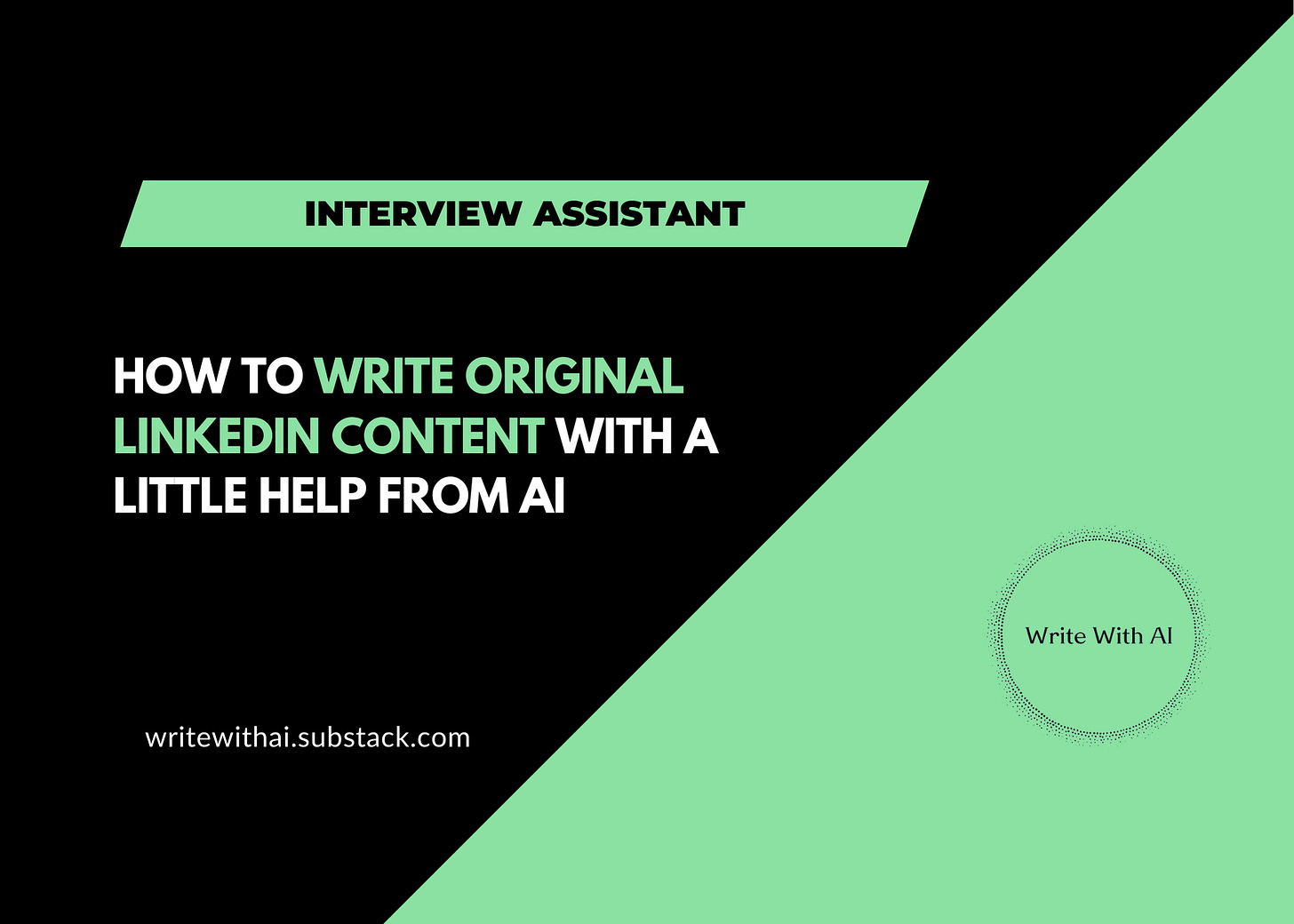5 Powerful Questions To Generate Endless LinkedIn Content Ideas
This is how you escape the "Curse Of Knowledge"
One of the hardest parts of writing online isn’t the writing itself.
It’s knowing what to write about.
Some days, you feel like you’ve already said everything worth saying. Other days, your mind goes blank and you can’t think of a single idea.
But when you learn how to ask yourself the right questions you’ll start to surface stories, lessons, and frameworks you didn’t even realize you had. That’s how you generate endless content ideas.
Let’s dive in.
Gather Tons Of Content Ideas With These 5 Questions And Escape The Curse Of Knowledge
Here’s the problem with brainstorming alone:
Most of us don’t “listen” to ourselves very well.
We skim past our own stories.
We downplay our own experiences.
We assume what we know isn’t valuable.
That’s why it’s so powerful to have someone else ask you these 5 questions.
You don’t always need another human to do this.
AI can act like your interviewer, put you on the spot, and help you unlock insights you wouldn’t have thought of on your own. All you have to do is feed it one of these questions and your industry, and it will “interview” you.
Here are the 5 questions:
Question #1: “What was it like the first time you…?”
This question works wonders if you want to find a personal story.
This can be related to any key moment in your life or what you have achieved:
“What was it like the first time you jumped out of an airplane?”
“What was it like being the youngest partner at your law firm?”
“What was it like the first time you sold your first tech company?”
Once you start replaying the memory like a movie, the content writes itself.
Question #2: “What’s your interpretation of…?”
This uncovers your opinions.
Take a trending topic or a piece of conventional wisdom and ask yourself:
“Why do I think this happened?”
“Why isn’t this perspective more popular?”
“Do I agree or disagree — and why?”
The goal is to work out where you have strong opinions — because those strong opinions will always be the things readers find most interesting. For example: one of the “controversial opinions” we write about all the time is: if you want to write on the Internet, don’t start a blog. Write on social platforms like Twitter, LinkedIn, Medium, Quora, etc. This goes against the grain of conventional wisdom in the writing industry so gets a lot of attention every time we say it.
This “against the grain” opinions is what you’re trying to find here.
Question #3: “Which way do you see this going in the future…?”
Ask yourself what today’s trends mean for tomorrow:
“Will the industry continue heading in this direction?”
“Is there anything that would would turn this around?”
“Does this trend even matter in your niche? Why or why not?”
This question allows you to crystallize all the different perspectives you have been considering quietly about your industry and where things are headed next — which you can then write about.
Question #4: “If you were to walk someone through how to do this, what would the steps be…?”
If you want to unlock your own frameworks, then ask yourself how you would explain how you do something to someone else — step-by-step.
“What would be the very first thing you’d recommend they do?”
“After that, what’s the next thing you would tell them to do?”
“Do you think there’s a step between those two?”
“What would be the very last step?”
The key here is act like a beginner. Dial your process back to basics.
You spend 90% of your time doing and not thinking about what you are doing. And when you unpack “how” you do what you do, you can achieve new levels of clarity of thought—which makes for stellar content.
Question #5: “How would you solve this…?”
Every industry has challenges, and if you want your audience to know how you make decisions, ask yourself how you approach the problems in your business.
“What are 3 things you would do to solve this today?”
“What’s the first thing you’d tell a complete beginner to do?”
“What’s the next thing you think they would struggle with?
The objective here is to unlock the various perspectives, effects, and elements you contemplate when tackling a problem. Why is this important? Because being able to articulate your problem-solving process not only helps you gain clarity on the solution but also showcases your expertise on the challenges faced in their industry.
Interview Assistant For LinkedIn Content
Here’s how to turn these 5 questions into endless LinkedIn content.
Step 1. Copy/Paste This Prompt Into Claude (or your AI tool of choice)
Keep reading with a 7-day free trial
Subscribe to Write With AI to keep reading this post and get 7 days of free access to the full post archives.




